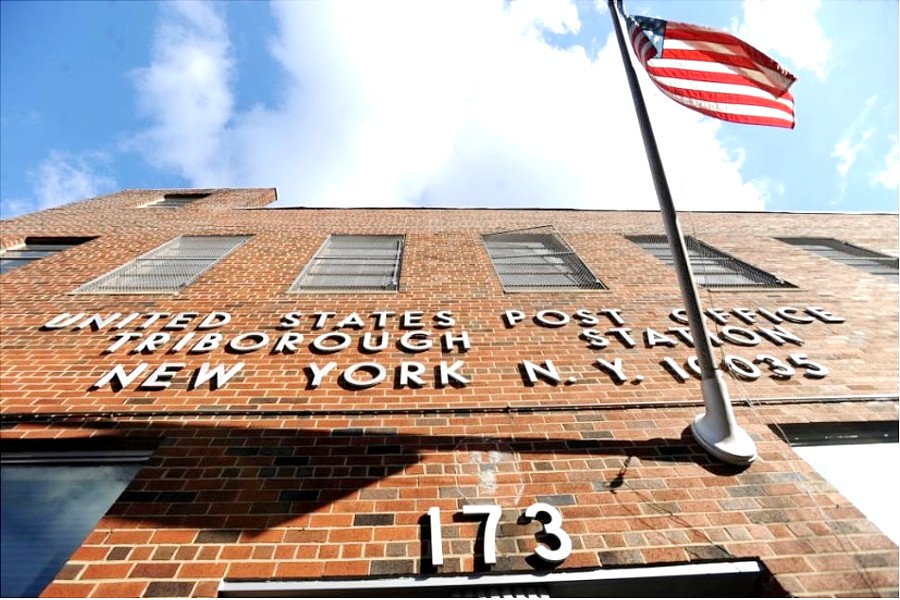
Earlier this week we reported that Allergy season set to hit NY hard this spring, today Consumer Affairs reported that Allergy season is a rough time, and while spring is highly anticipated, the constant congestion and sneezing is not.
A new study found that allergies could be getting worse because of climate change, as spring arriving quicker, and quicker only intensifies allergy symptoms.
“We found that areas, where the onset of spring was earlier than normal, had 14 percent higher prevalence of hay fever,”
“We found that areas, where the onset of spring was earlier than normal, had 14 percent higher prevalence of hay fever,” said researcher Dr. Amir Sapkota. “Surprisingly, we also found similar risk in areas where the onset of spring was much later than what is typical for the geographic location.”
Feeling the effects of an early spring
The researchers had two major components of this study: determining when spring started and then examining consumers’ health in relation to that date.
To determine the health effects, the researchers looked at over 300,000 responses to the Centers for Disease Control and Prevention’s (CDC) National Health Interview Survey from 2002 through 2013.
For the first part, the researchers utilized data from NASA’s Moderate Resolution Imaging Spectroradiometer (MODIS) to analyze when plants and trees began releasing pollen. To determine the health effects, the researchers looked at over 300,000 responses to the Centers for Disease Control and Prevention’s (CDC) National Health Interview Survey from 2002 through 2013.
In the areas they studied, the researchers found that the early onset of spring — characterized by plants producing pollen earlier than usual — worsened allergy symptoms of residents in these areas. However, in areas where spring arrived later, residents were also 14 percent more likely to report symptoms of hay fever.
In the areas they studied, the researchers found that the early onset of spring — characterized by plants producing pollen earlier than usual — worsened allergy symptoms of residents in these areas. However, in areas where spring arrived later, residents were also 14 percent more likely to report symptoms of hay fever.
According to the researchers, the earlier spring comes, the longer allergy sufferers are forced to endure exposure to pollen, whereas when spring comes later, consumers are inundated with large bursts of pollen that can be equally as detrimental to health.
Even a relatively small change in the timing of tree flowering can have a significant economic impact given that 25 million American adults already suffer from hay fever each year.
“Previous studies have shown that plant phenology is highly dependent on temperature,” said Dr. Chengsheng Jiang. “As such, it is one of the most sensitive indicators of how our ecosystem is responding to climate change. We show that climate change-driven ecological changes are directly linked to allergic disease burden in the United States. Even a relatively small change in the timing of tree flowering can have a significant economic impact given that 25 million American adults already suffer from hay fever each year.”
Moving forward, the researchers hope that these findings inspire lawmakers to adapt to our changing climate and do everything in their power to intervene as early as possible.
“Climate change impacts our health in more ways than we can imagine,” said Dr. Sapkota. “We need community-specific adaptation strategies to increase resilience and minimize disease burden associated with climate change.”
Fighting allergies and climate change
Many studies have focused on how consumers are suffering due to the changing climate. Not only is public health on the decline due to climate change, but experts have also predicted that cases of Lyme disease are expected to be on the upswing.
Most recently, one researcher from San Francisco State University conducted a study on how humans and wildlife will be affected by the rapidly rising temperatures that we are experiencing due to climate change.
Related: With The 2100 Harlem Mega Flood Coming, How Will We Be Impacted By Rising Temperatures? from Harlem researcher Harlem born 2018 Noble Prize on the environment winner Dr. Paul G. Falkowski.
“We can’t say it’s going to happen next year,” said researcher Jonathon Stillman. “But if we continue on the current trajectory, by the end of this century we’re going to see heat waves that will dwarf those that have killed huge numbers of people and wildlife.”
Now with allergies on the brain, the American College of Allergy, Asthma, and Immunology (ACAAI) has released tips to help consumers battle their allergies this coming spring.
Photo credit: In this aerial photo a boat motors between flooded homes after heavy rains inundating the region Saturday, Aug. 13, 2016, in Hammond, La. Louisiana Gov. John Bel Edwards says more than 1,000 people in south Louisiana have been rescued from homes, vehicles and even clinging to trees as a slow-moving storm hammers the state with flooding. (AP Photo/Max Becherer).
Become a Harlem Insider!
By submitting this form, you are consenting to receive marketing emails from: Harlem World Magazine, 2521 1/2 west 42nd street, Los Angeles, CA, 90008, https://www.harlemworldmagazine.com. You can revoke your consent to receive emails at any time by using the SafeUnsubscribe® link, found at the bottom of every email. Emails are serviced by Constant Contact








